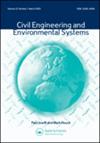政治约束下的可持续自然资源管理决策——以修改挪威水道水电许可证为例
IF 1.1
3区 工程技术
Q3 ENGINEERING, CIVIL
引用次数: 9
摘要
挪威是欧洲最大的水电生产国,目前提供96%的国内电力供应。水电是一种可再生和气候友好型能源,但对当地环境条件、受影响的水道和湖泊及其周边的娱乐用途和美学造成损害。挪威大约70%的大型水道和全国一半的水域都被规定用于水力发电。到2022年,挪威将修订多达430个水电许可证,以实施欧洲水框架指令。这些具有相当大的潜力,可以改善挪威水道的环境和审美条件。我们通过对所有相关书面来源的文件分析,检查了五个完成的许可证修订的决策,显示了修订过程的内容,方法和程序质量。尽管具体情况有所不同,但也有重要的共性,这些共性构成了建议的基础。多准则决策分析(MCDA)可用于改进水电决策过程中物理影响的记录和价值判断。我们分析了主要利益集团对未来修订中使用MCDA的看法。由于各种政治和监管原因,使用MCDA存在相当强的阻力。本文章由计算机程序翻译,如有差异,请以英文原文为准。
Decision making for sustainable natural resource management under political constraints – the case of revising hydropower licenses in Norwegian watercourses
ABSTRACT Norway is the largest hydropower producer in Europe and provides currently 96% of domestic electricity supplies. Hydropower is a renewable and climate friendly source of energy, but causes an impairment on local environmental conditions, recreational use and aesthetics in and along impacted watercourses and lakes. Around 70% of the larger Norwegian watercourses and half of the country`s total water-covered areas are regulated for hydropower production. By 2022, up to 430 hydropower licences will come up for revisions to implement the European Water Framework Directive in Norway. These have considerable potential to increase environmental and aesthetic conditions in Norwegian watercourses. We examine the decision-making of five completed licence revisions by means of document analyses of all relevant written sources, showing the content, methods and procedural qualities of the revision process. Despite case-specific differences, there are significant commonalities which form the basis for recommendations. Multi-criteria decision analysis (MCDA) can be used to improve the documentation of physical impacts and value judgements in hydropower decision-making processes. We analyse the perception of main interest groups with regards to the use of MCDA in future revisions. There exists a rather strong resistance to using MCDA due to a variety of political and regulatory reasons.
求助全文
通过发布文献求助,成功后即可免费获取论文全文。
去求助
来源期刊

Civil Engineering and Environmental Systems
工程技术-工程:土木
CiteScore
3.30
自引率
16.70%
发文量
10
审稿时长
>12 weeks
期刊介绍:
Civil Engineering and Environmental Systems is devoted to the advancement of systems thinking and systems techniques throughout systems engineering, environmental engineering decision-making, and engineering management. We do this by publishing the practical applications and developments of "hard" and "soft" systems techniques and thinking.
Submissions that allow for better analysis of civil engineering and environmental systems might look at:
-Civil Engineering optimization
-Risk assessment in engineering
-Civil engineering decision analysis
-System identification in engineering
-Civil engineering numerical simulation
-Uncertainty modelling in engineering
-Qualitative modelling of complex engineering systems
 求助内容:
求助内容: 应助结果提醒方式:
应助结果提醒方式:


